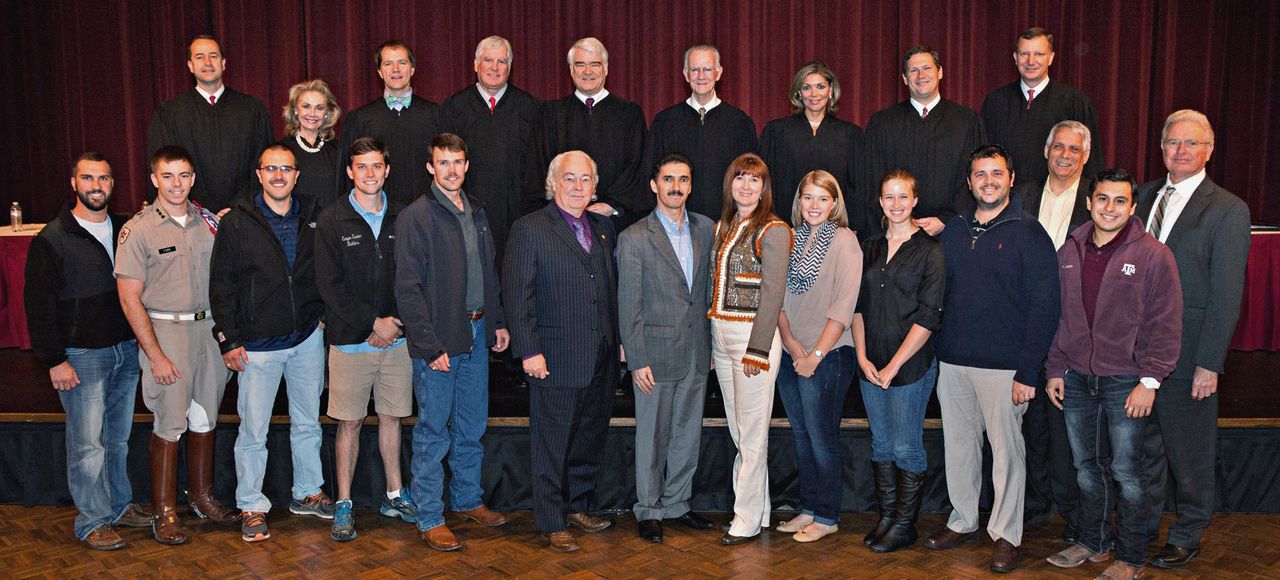Table of Content
We launched @recap.email and legal webhooks. In a few days, we will add appellate court support to the RECAP extension. Court refused to modify the judgment, and the State appealed. Substantively altered, a party adversely affected could terminate the agreement.

The UPA does not permit this exceptional treatment. The plaintiffs did not participate in the proceedings in the court of appeals. The State argues that because Highland Homes has now disclaimed any interest in settlement funds, it lacks standing to complain of the court of appeals' modification of the settlement and the judgment predicated on it. But “ final judgment which is founded upon a settlement agreement reached by the parties must be in strict or literal compliance with that agreement”. Youth Camps, Inc., 532 S.W.2d 292, 292 (Tex.1976) . It should go without saying that when a party agrees to one judgment and a materially different one is rendered, the party is personally aggrieved and has standing to complain.
Texas Supreme Court
Why should money escheat to the State, if a charity can benefit from unclaimed settlement proceeds? The problem, as I see it, is two fold. First, and foremost, under the terms of this settlement agreement, the money belongs to the missing class members, not to Highland or the class representative. The missing parties' property rights can only be preserved if the State is permitted to act as their custodian under the UPA. Second, even if this were an appropriate case for a cy pres distribution , the cy pres distribution here is contrary to existing law on the subject.
We agree with the State, however, that trial courts must be careful in class actions to protect class interests and scrutinize settlements. No one suggests that the trial court in this case failed in that responsibility. Furthermore, the settlement administrator no longer has property belonging to the settlement class members and is not indebted to them because they have agreed, through class representatives, to exercise their right to payment under the settlement agreement within 90 days. With court approval, class representatives were no less authorized to negotiate and agree to the terms of settlement than they were to agree to the amounts paid.
Checking if the site connection is secure
Such cy pres distribution shall be made to the Nature Conservancy, a non-profit, charitable organization operating in Texas. In 2009, Benny & Benny amended its pleadings to add another subcontractor, Richard Polendo, and together they asserted claims on behalf of a class of more than 1,800 other subcontractors from whose pay Highland Homes had deducted amounts for insurance before clarifying its policy. The trial court certified the class under Rule 42,7 found Benny & Benny and Polendo to be adequate class representatives, appointed their lawyers as class counsel, and adopted a trial plan. Highland Homes appealed, but while the appeal was pending, the parties settled, subject to notice to the class and the trial court's review and approval. Finally, the Court argues that the UPA should not apply because it intrudes on the class representative's authority to act for class members under Rule 42.
See DaimlerChrysler Corp. v. Inman, 252 S.W.3d 299, 304 (Tex.2008) (“For standing, a plaintiff must be personally aggrieved ․”). The cy pres award was a significant part of the settlement, and we cannot assume that Highland Homes would have reached the same agreement without it. V. Daccach, 217 S.W.3d 430, 450 (Tex.2007) (“Basic principles of res judicata apply to class actions just as they do to any other form of litigation.”) .
Stay up-to-date with FindLaw's newsletter for legal professionals
If they went unclaimed for three years. State by Furman v. Jefferson Lake Sulphur Co. To a civil action” but to facilitate the efficient adjudication of such rights and obligations.

“unclaimed funds” determinative; the refunds were, in fact, claimed. Effect on nonparties include properly conducted class actions,” but refusing to extend nonparty preclusion); Martin v. Property—a private escheat agreement prohibited by the UPA. Petitioner, Highland Homes, Ltd., a homebuilder in the Austin, Dallas–Fort Worth, Houston, and San Antonio areas, employs hundreds of subcontractors. In 2003, Highland Homes began docking subcontractors' pay if they did not furnish proof of adequate general liability insurance coverage. Highland Homes contends that the deductions were to cover its own increased exposure from working with uninsured subcontractors.
HIGHLAND HOMES LTD. v. THE STATE OF TEXAS (Dissenting)
The Court concludes, however, that Highland is no longer a "holder" of any identified class member's property and that the settlement agreement does not concern abandoned property, and thus, the UPA does not apply. The Court apparently agrees that the UPA would invalidate the settlement agreement's 90-day limitation period and private escheat provision, if it applied to the agreement. Such procedures include court approval of class representatives and class counsel, notice to class members, and court approval of a proposed settlement after an opportunity to be heard.
For purposes of the UPA and the three-year period, at least, a check represents a property right that is distinct from the underlying obligation or transaction it represents. Missing property owners and in so doing also marginalizes the UPA's public policy concerns. Generally, when those circumstances persist for three years, the property in the possession of another is presumed abandoned by its owner and must be turned over to the State for safekeeping under the UPA. Not prevent property from being presumed abandoned. But that provision is inconsequential here. First place, the class representative also had the authority to prescribe the terms under which the checks would be paid.
An administrator designated by the parties would then use computer software and other means to update the addresses. If the settlement was finally approved, Highland Homes would issue refunds checks, sending them to existing subcontractors as it would their paychecks or by mailing checks to former subcontractors last known addresses. The following example illustrates the flaw in the State's argument. Suppose Benny & Benny had never asserted class claims, had settled its own claims on the same terms, and then had decided to tear up the $28,000 settlement check in hopes of getting more business from Highland Homes. Surely the State could not insist that Highland Homes was nevertheless obligated to pay the $28,000 to the Comptroller until Benny & Benny broke down and took it. Suppose Benny & Benny made the same decision for Polendo, acting as his attorney-in-fact.

Responsibility for holding the property until the rightful owner can be located. In 2022, Free Law Project served nearly 200 million documents and sent more than 1.3 million alerts to our users. We added millions of opinions to our database and summarized over a million opinions.
As much as I respect and admire the mission of The Nature Conservancy, I fail to see its connection to the subcontractors' suit, which alleged that Highland misrepresented that liability insurance would be provided for uninsured subcontractors through payroll deductions. Aware that the State had once challenged a cy pres award as violative of the Unclaimed Property Act,14 the parties notified the Attorney General of their proposed award of undistributed refunds to the Conservancy. Shortly after judgment was rendered but before it became final, the State intervened to object to the award, arguing that the undistributed residue should be retained for three years and then paid to the Comptroller to hold for any owners who eventually surfaced.

The trial court refused to modify the judgment, and the State appealed. When the rule is followed, class representatives may assert—and agree to disposition of—claims on behalf of the class, including claims on behalf of absent members. In my view, the above provision includes both a limitation period and private escheat agreement prohibited under the UPA. The Property Code provides that property is presumed abandoned if "for longer than three years," no claim has been asserted or act of ownership exercised. Such reasoning renders the statutory prohibitions against private escheat agreements and contractual time limits meaningless.
The issue in this case is whether damages and settlement proceeds claimed by class representatives on behalf of absent members are nevertheless unclaimed property, presumed abandoned, and therefore subject to the Act. In other words, does the Act prohibit what Rule 42 permits—the disposition of absent class members' claims by their representatives with court approval? We hold that the Act, by its own terms, does not apply.
The Supreme Court reversed, holding that the Act did not apply in this case and that the judgment approving the settlement agreement was binding on all settlement class members. I fail to see how the class members' property interests here are any different or why they are entitled to any less protection under our UPA. Although parties generally have the right to contract as they see fit, they do not have the right to make agreements that violate the law or public policy. Co. of Am., 148 S.W.3d 124, 129 & n.11 (Tex.2004). This agreement violates the law because the parties have substantively agreed to the redisposition of future, unclaimed property—a private escheat agreement prohibited by the UPA.

No comments:
Post a Comment